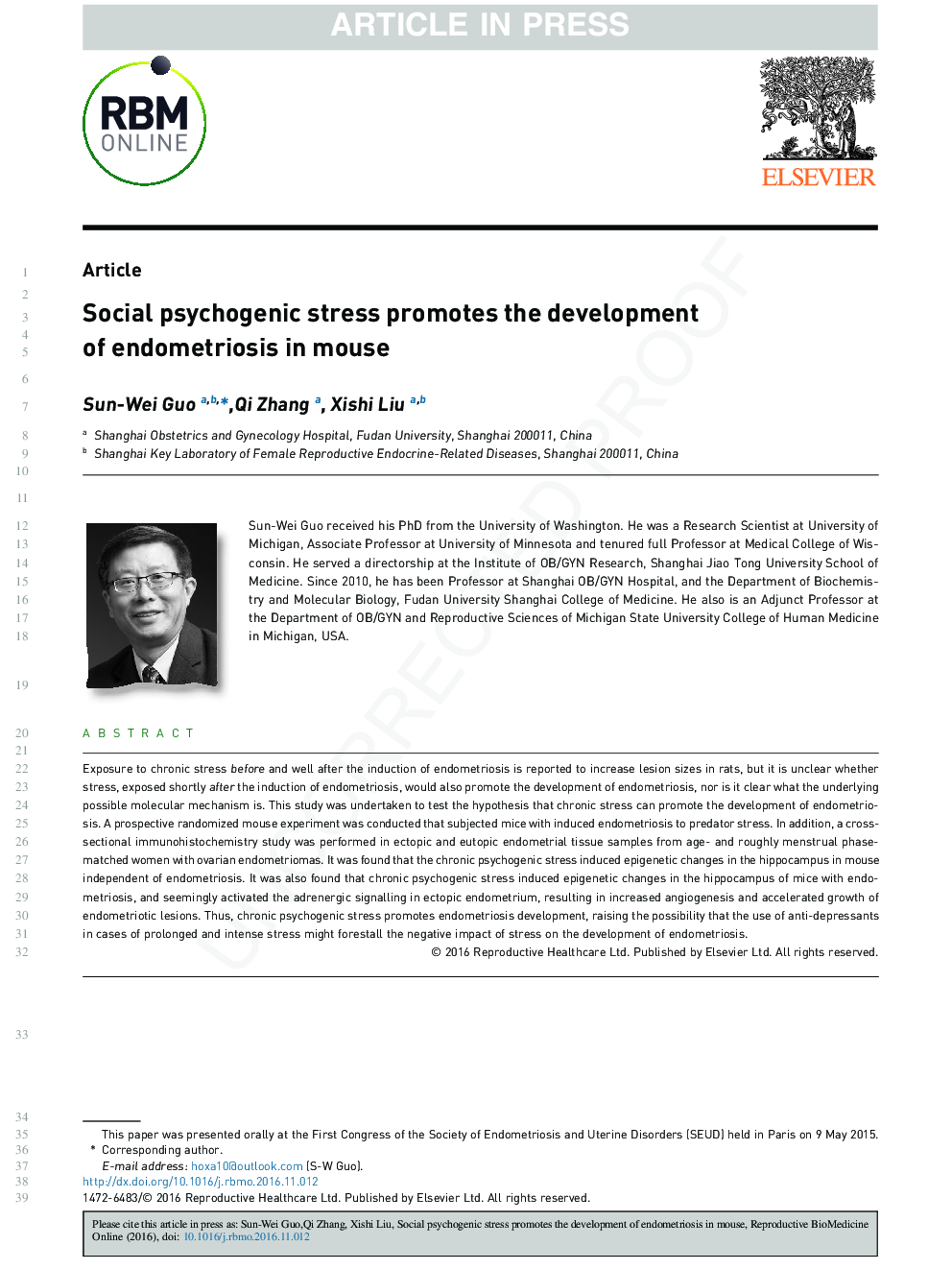| Article ID | Journal | Published Year | Pages | File Type |
|---|---|---|---|---|
| 5696702 | Reproductive BioMedicine Online | 2017 | 15 Pages |
Abstract
Exposure to chronic stress before and well after the induction of endometriosis is reported to increase lesion sizes in rats, but it is unclear whether stress, exposed shortly after the induction of endometriosis, would also promote the development of endometriosis, nor is it clear what the underlying possible molecular mechanism is. This study was undertaken to test the hypothesis that chronic stress can promote the development of endometriosis. A prospective randomized mouse experiment was conducted that subjected mice with induced endometriosis to predator stress. In addition, a cross-sectional immunohistochemistry study was performed in ectopic and eutopic endometrial tissue samples from age- and roughly menstrual phase-matched women with ovarian endometriomas. It was found that the chronic psychogenic stress induced epigenetic changes in the hippocampus in mouse independent of endometriosis. It was also found that chronic psychogenic stress induced epigenetic changes in the hippocampus of mice with endometriosis, and seemingly activated the adrenergic signalling in ectopic endometrium, resulting in increased angiogenesis and accelerated growth of endometriotic lesions. Thus, chronic psychogenic stress promotes endometriosis development, raising the possibility that the use of anti-depressants in cases of prolonged and intense stress might forestall the negative impact of stress on the development of endometriosis.
Related Topics
Health Sciences
Medicine and Dentistry
Obstetrics, Gynecology and Women's Health
Authors
Sun-Wei Guo, Qi Zhang, Xishi Liu,
